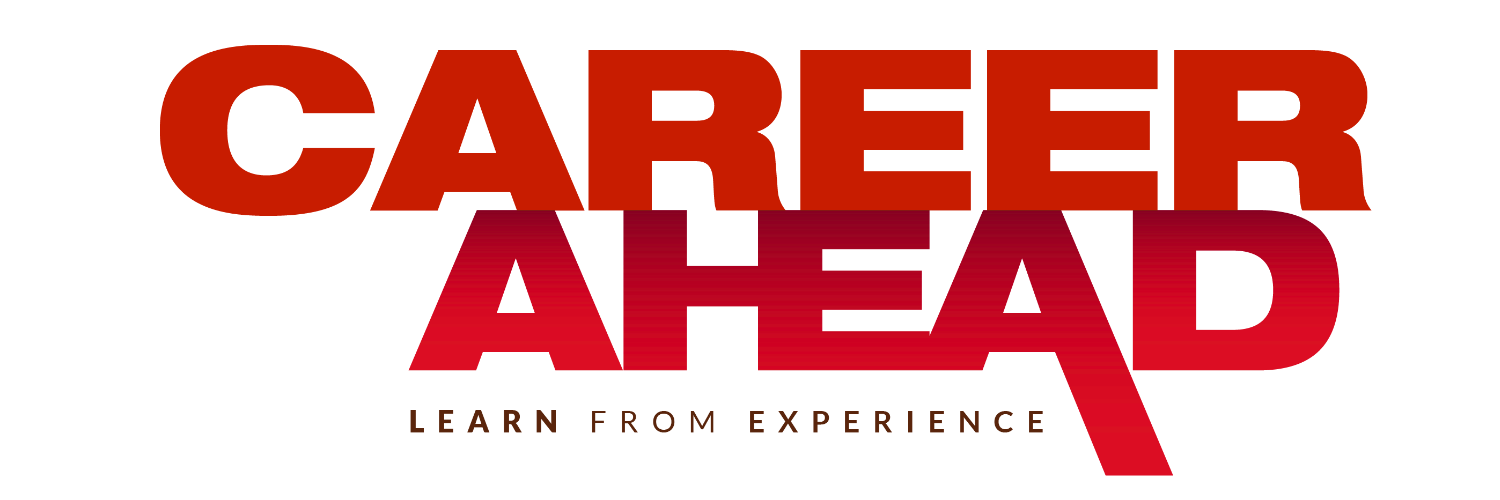No products in the cart.
Achieving Work-Life Balance: Strategies for a Fulfilling Career
Learn how to achieve work-life balance and create a fulfilling career while nurturing your personal life. Prioritize self-care, set boundaries, manage time effectively, and foster supportive relationships. Discover actionable strategies to enhance your well-being and find harmony between work and life.
In today’s fast-paced world, achieving a healthy work-life balance is essential for a fulfilling career. It’s all too easy to get caught up in the demands of work and neglect other aspects of our lives. However, by prioritizing self-care and adopting effective strategies, we can enhance our overall well-being and create a harmonious balance between our professional and personal lives. This article aims to provide you with valuable insights and actionable tips on achieving work-life balance to help you lead a more fulfilling career.
1. Prioritizing Self-Care: The Foundation of Work-Life Balance
To achieve work-life balance, it’s crucial to prioritize self-care. Taking care of your physical, mental, and emotional well-being forms the foundation for a fulfilling career and a satisfying personal life. Make time for activities that recharge and rejuvenate you, such as exercising, getting enough sleep, pursuing hobbies, and practicing mindfulness.
2. Setting Clear Boundaries: Separating Work and Personal Life
One of the key strategies for achieving work-life balance is setting clear boundaries between work and personal life. Create designated spaces and time frames for work-related tasks and leisure activities. Avoid checking work emails or taking calls outside of work hours whenever possible. By delineating these boundaries, you can prevent work from encroaching on your personal time and maintain a healthier balance.
3. Effective Time Management: Maximizing Productivity and Leisure
Effective time management is essential for achieving work-life balance. Prioritize your tasks, break them into manageable segments, and allocate specific time slots for work, personal commitments, and relaxation. Utilize productivity techniques like the Pomodoro Technique or time blocking to enhance focus and maximize productivity. By managing your time efficiently, you can ensure that both work and personal life receive the attention they deserve.
4. The Power of Delegation: Sharing Responsibilities and Relieving Stress
Delegation is a powerful strategy for achieving work-life balance. Recognize that you don’t have to do everything yourself. Delegate tasks to capable colleagues or outsource certain responsibilities when possible. Sharing the workload not only lightens your burden but also allows you to focus on higher-value tasks. By reducing stress and freeing up time, delegation contributes to a more fulfilling career and personal life.
5. Cultivating Supportive Relationships: Nurturing Connections
Strong and supportive relationships are essential for work-life balance. Invest time and effort in nurturing your relationships with family, friends, and colleagues. Communicate openly, listen attentively, and show appreciation for the important people in your life. Building a strong support network helps create a positive and fulfilling environment both at work and in your personal life.
6. Embracing Technology: Leveraging Tools for Efficiency
Technology can be a powerful ally in achieving work-life balance. Utilize productivity apps, project management tools, and communication platforms to streamline your work processes. Take advantage of automation and digital solutions to minimize repetitive tasks and save time. However, it’s crucial to maintain a healthy relationship with technology and set boundaries to avoid becoming overwhelmed or constantly accessible.
7. The Importance of Hobbies and Recreation: Finding Joy Outside of Work
In the pursuit of work-life balance, it’s crucial to make time for hobbies and recreation. Engaging in activities that bring you joy and relaxation outside of work is essential for your overall well-being. Whether it’s pursuing a hobby like painting, playing a musical instrument, or engaging in sports, finding activities that ignite your passion and provide a sense of fulfillment is key. These moments of recreation not only offer a break from work but also rejuvenate your mind and boost your creativity. Prioritize your hobbies and make them an integral part of your life to achieve a more fulfilling career and personal life.
8. Wellness Initiatives: Incorporating Health and Fitness into Your Routine
Taking care of your physical well-being is vital for work-life balance. Incorporate wellness initiatives into your daily routine to promote good health and fitness. This can include activities like regular exercise, maintaining a balanced diet, staying hydrated, and getting enough sleep. Physical well-being directly impacts your energy levels, focus, and overall productivity. By prioritizing your health, you are better equipped to handle the demands of work and enjoy a more balanced and fulfilling career.
9. Developing Emotional Intelligence: Managing Stress and Emotions
Emotional intelligence plays a significant role in achieving work-life balance. Developing self-awareness and effectively managing stress and emotions is crucial for your well-being. Practice techniques like deep breathing, mindfulness, and journaling to enhance your emotional resilience. By understanding and regulating your emotions, you can navigate work challenges more effectively and maintain healthier relationships both at work and in your personal life. Prioritize emotional well-being alongside your professional growth to create a more harmonious and satisfying career.
10. The Art of Saying No: Establishing Healthy Priorities
Learning to say no is an essential skill when striving for work-life balance. Many individuals struggle with setting boundaries and taking on more than they can handle, leading to overwhelm and imbalance. It’s important to establish healthy priorities and recognize your limits. Assess your commitments and obligations carefully, and learn to decline requests or delegate tasks when necessary. By saying no to non-essential or excessive responsibilities, you create space for activities that truly matter to you, both personally and professionally.
11. Continuous Learning and Growth: Balancing Personal and Professional Development
Achieving work-life balance doesn’t mean neglecting personal and professional growth. It’s important to strike a balance between the two and engage in continuous learning. Identify areas of interest and set goals for personal development, whether it’s learning a new skill, pursuing further education, or attending workshops and seminars. By investing in your growth, you not only enhance your career prospects but also find fulfillment outside of work. Maintain a healthy equilibrium between personal and professional development to foster a well-rounded and satisfying life.
12. Flexibility and Remote Work: Harnessing the Benefits
The rise of remote work and flexible work arrangements has provided new opportunities for achieving work-life balance. Take advantage of these options if available to you. Remote work allows for greater
flexibility in managing your time and location. It enables you to create a schedule that accommodates personal commitments and reduces commuting time, providing more opportunities for a fulfilling personal life. Embrace the benefits of remote work while maintaining clear boundaries between work and personal life to enjoy a more balanced and flexible career.
13. Mindfulness and Meditation: Cultivating Inner Peace
In today’s fast-paced world, practicing mindfulness and meditation can greatly contribute to work-life balance. Carve out moments in your day for stillness and reflection. Engage in mindfulness techniques such as meditation, deep breathing, or yoga to cultivate inner peace and reduce stress. These practices help you stay present, focused, and grounded amidst the demands of work and personal life. By nurturing your inner well-being, you create a solid foundation for a fulfilling career and a harmonious balance in all areas of your life.
14. Setting Realistic Expectations: Avoiding Burnout
Setting realistic expectations for yourself is essential to avoid burnout and maintain work-life balance. Understand your limitations and define achievable goals. Be mindful of your workload and avoid overcommitting. Recognize that perfection is not always attainable and that it’s okay to prioritize self-care and well-being. By managing your expectations and adopting a realistic approach, you can avoid excessive stress and maintain a healthy equilibrium between work and personal life.
15. Seeking Professional Support: The Role of Coaching and Counseling
Sometimes, achieving work-life balance requires seeking professional support. Consider working with a career coach or counselor who specializes in work-life balance. These professionals can provide guidance, strategies, and support tailored to your specific situation. They can help you navigate challenges, set meaningful goals, and maintain accountability in your pursuit of work-life balance. Seeking professional support is a proactive step towards creating a fulfilling career and a harmonious life.
16. Creating a Supportive Work Environment: Advocating for Change
A supportive work environment is crucial for work-life balance. Advocate for change within your workplace by promoting policies and practices that prioritize work-life balance. Encourage open communication, flexible work arrangements, and initiatives that promote employee well-being. By fostering a supportive work environment, you contribute to a culture that values work-life balance and benefits everyone.
17. Work-Life Integration: Finding Synergy
Work-life integration is an alternative approach to work-life balance that aims to find synergy between work and personal life. Rather than strictly compartmentalizing the two, work-life integration focuses on creating a harmonious blend. Find ways to incorporate personal activities and passions into your work, and vice versa. Embrace the idea that work and personal life can coexist and enhance each other, leading to greater fulfillment and satisfaction.
18. Effective Communication: Building Strong Relationships at Work and Home
Effective communication is key to maintaining work-life balance. Clearly communicate your needs, boundaries, and expectations to both your colleagues and loved ones. Foster open and honest dialogue to avoid misunderstandings and conflicts. By establishing strong communication channels, you can nurture positive relationships both in the workplace and at home, contributing to a balanced and fulfilling life.

19. Travel and Exploration: Broadening Horizons and Gaining Perspective
Traveling and exploration can be a valuable tool for achieving work-life balance. Take time to indulge in travel and explore new places. Stepping out of your routine and experiencing different cultures and environments can broaden your horizons and provide fresh perspectives. It allows you to disconnect from work and recharge, leading to increased productivity and overall well-being.
20. Financial Planning: Reducing Money-Related Stress
Financial stress can greatly impact work-life balance. Engage in effective financial planning to reduce money-related stress. Create a budget, save for the future, and prioritize financial goals. Seek professional advice if needed. By managing your finances wisely, you can alleviate stress and create a more stable foundation for a fulfilling career and personal life.
21. Avoiding Perfectionism: Embracing Imperfection and Balance
Perfectionism can hinder work-life balance. Learn to embrace imperfection and strive for balance instead. Understand that perfection is unattainable, and that it’s okay to make mistakes or have moments of imperfection. Focus on progress, not perfection, in both your professional and personal pursuits. By letting go of perfectionism, you can reduce stress and enjoy a more fulfilling and balanced life.
22. Balancing Parenthood and Career: Strategies for Working Parents
Balancing parenthood and a career can be challenging. Establish routines, set boundaries, and prioritize quality time with your family. Communicate with your employer about flexible work arrangements or parental leave options. Seek support from your partner, family, and friends. Remember to take care of yourself as well. By adopting effective strategies, you can navigate the demands of parenthood and your career while maintaining work-life balance.
23. Managing Remote Work Challenges: Creating Boundaries and Structure
While remote work offers flexibility, it can present unique challenges to work-life balance. Create clear boundaries between work and personal life, even when working from home. Establish a designated workspace, set specific work hours, and communicate your availability to colleagues. Structure your day to maintain productivity and ensure time for personal activities. By managing remote work challenges effectively, you can enjoy the benefits of flexibility without sacrificing work-life balance.
24. The Role of Leadership: Fostering Work-Life Balance in Organizations
Leaders play a crucial role in fostering work-life balance within organizations. Promote a culture that values work-life balance and leads by example. Enc
ourage flexible work arrangements, provide resources for employee well-being, and prioritize open communication. By fostering a healthy work-life balance, leaders contribute to the overall success and happiness of their team members.
25. Overcoming Guilt: Embracing Self-Care Without Shame
Guilt can be a barrier to achieving work-life balance. Overcome guilt by understanding that self-care is essential, not selfish. Prioritize self-care without shame or guilt, knowing that it benefits both you and those around you. Recognize that taking care of your well-being enables you to bring your best self to both your career and personal life. Embrace self-care as an integral part of achieving work-life balance.
Achieving work-life balance requires dedication and a commitment to self-care. By implementing the strategies outlined in this article, you can create a fulfilling career and a harmonious balance between your professional and personal life. Remember, work-life balance is a continuous journey, so be patient with yourself and make adjustments along the way. Enjoy the benefits of a balanced life, where both your work and personal pursuits thrive, contributing to your overall well-being and happiness.
Frequently Asked Questions (FAQs):
Q: How can I achieve work-life balance while pursuing a demanding career?
A: Achieving work-life balance in a demanding career requires careful planning and prioritization. Set boundaries, delegate tasks, and make self-care a priority. It’s essential to strike a balance between your professional and personal commitments to avoid burnout and maintain overall well-being.
Q: Is it possible to achieve work-life balance in a highly competitive work environment?
A: Yes, it is possible to achieve work-life balance even in a highly competitive work environment. It requires effective time management, setting boundaries, and prioritizing self-care. By managing your time wisely and focusing on your well-being, you can create a healthy work-life balance.
Q: How can I overcome guilt when taking time for myself?
A: Overcoming guilt when taking time for yourself is essential for work-life balance. Remember that self-care is not selfish but necessary for your overall well-being. Remind yourself that you deserve time to relax and recharge. By prioritizing self-care, you will be better equipped to excel in your career and personal life.
Q: What role does employer support play in achieving work-life balance?
A: Employer support plays a significant role in achieving work-life balance. Companies that prioritize
work-life balance by offering flexible work arrangements, wellness programs, and support systems contribute to the well-being of their employees. Open communication with your employer about your needs and exploring available resources can help in achieving a healthy work-life balance.
Q: How can I maintain work-life balance in the face of unexpected challenges or changes?
A: Unexpected challenges or changes can disrupt work-life balance. During such times, it’s important to be adaptable and resilient. Re-evaluate your priorities, seek support from loved ones or professionals, and adjust your plans accordingly. By being proactive and flexible, you can maintain a sense of balance even in the face of unexpected circumstances.
Author
-

Career Ahead, the flagship handle of Career Ahead Magazine, is dedicated to molding the next generation of professionals and entrepreneurs. Our mission is to educate and inspire today's ambitious minds to become the icons of tomorrow. As the ultimate tool and resource, we cater to young students, budding entrepreneurs, and innovative startups, providing them with the knowledge and inspiration needed to navigate their paths to success. Through in-depth articles, insightful analysis, and inspiring stories, Career Ahead empowers its readers to forge their futures in the ever-evolving world of work and enterprise.
View all posts












